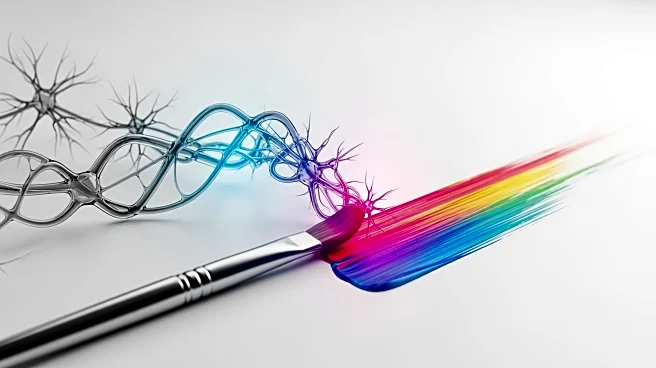What's Happening?
At the Adcolor conference, Kelsey Lindell, CEO of Misfit Media, discussed the dual perspectives of AI in disability inclusion. While AI helps her communicate more effectively, it also poses challenges
by perpetuating stereotypes and erasing diversity. Neisha Tweed Bell, founder of Next Level Up Creative, highlighted AI's transformative impact on her business, using tools like ChatGPT and Copilot to enhance creativity. Despite concerns about AI's representation of disabled individuals, the technology offers significant benefits in adtech and creative industries.
Why It's Important?
AI's integration into creative industries and disability inclusion is crucial for fostering diversity and innovation. By leveraging AI, businesses can enhance communication and creativity, reaching broader audiences and improving representation. However, the technology's reliance on existing content raises concerns about perpetuating stereotypes and erasing diverse identities. Ensuring AI tools are inclusive and fair is essential for promoting equity and preventing harm.
What's Next?
As AI continues to evolve, companies must prioritize ethical considerations and collaborate with advocacy groups to ensure technology is inclusive. This includes developing AI tools that accurately represent diverse populations and address biases. The creative industry may need to establish guidelines for AI use, balancing innovation with ethical responsibility. Ongoing dialogue about AI's impact on diversity and inclusion will be vital for shaping its future role.
Beyond the Headlines
The ethical implications of AI in creative industries highlight the need for diverse perspectives in technology development. Ensuring AI tools are designed with inclusivity in mind can prevent the erasure of marginalized communities and promote equitable representation. The role of AI in shaping cultural narratives underscores the importance of responsible innovation and the potential for technology to drive positive change.








